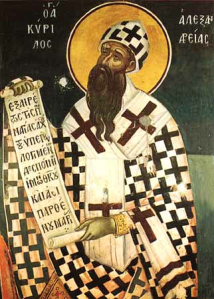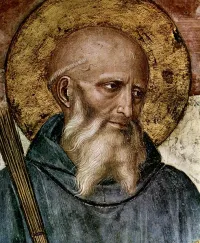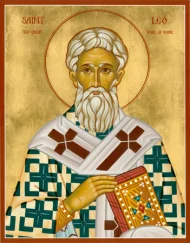 Continued from here….
Continued from here….
If we are convinced that the Son is really and truly in His own Father, and He has Him that begat Him in His own nature, and all things are brought to perfection by Both in the Spirit as by One Divinity, neither will the Father be without His share in nourishing us, nor can the Son be thought not to partake in His husbandry.
For where Their identity of nature is seen in unmistakeable language, there too there is no division of activity, though any one may think that they have manifold diversities of operations.
And, as there is one Substance, that is the true and real Godhead conceived of in three Persons, that is in the Father, and the Son, and the Holy Ghost, is it not extremely clear and incontrovertible that when we speak of an activity of one, it is a function of the One and entire Divinity, in the way of inherent power?
Moreover, our Lord Jesus Christ, accepting His Father as His Fellow-worker in all He did, once…said: Many good works have I showed you from My Father: for which of those works do ye stone Me? And again, about working on the Sabbath-day: My Father worketh even until now, and I work.
And no one would think He said that the Father acts separately in His dealings with the world, and so also the Son. For since the Father does all things by the Son, and could not otherwise act, as He is His wisdom and power, for this reason He, on the other hand, called the Father the doer of His own works, when He said: I do nothing of Myself; but the Father abiding in Me doeth His works.
I think, therefore, we ought to take this view and no other, that Christ takes the place of the vine, and we are dependent on Him as branches, enriched as it were by His grace, and drinking in by the Spirit spiritual power to bear fruit.
[…] Christ, being as it were the root, is the Vine, and we are the branches. And if He called the Father the Husbandman, do not think that He spoke of Him as being different in substance.
For He does not mean this, as we have said; but wishes to point out that the Divine Nature is the root and origin in us of the power of producing the fruits of the Spirit of life, besides the blessings we have spoken of, tending us like a husbandman, and extending over those who are called by faith to partake in it the providence of love.
Cyril of Alexandria (c. 376-444): Commentary on John, Book 10 (on John 15:1ff).








